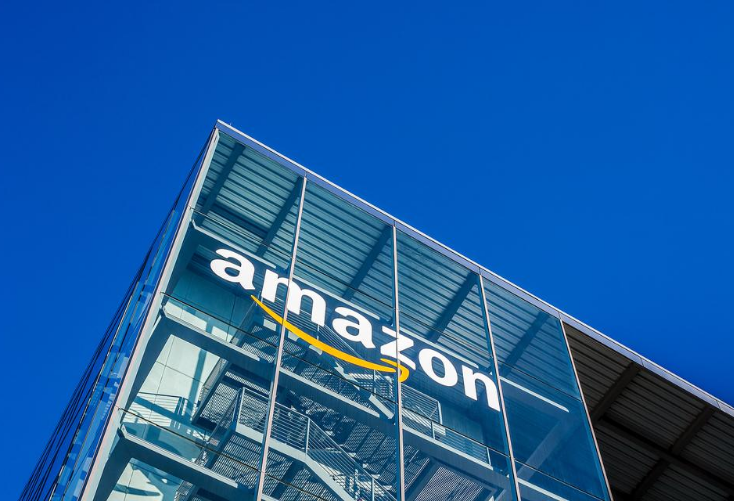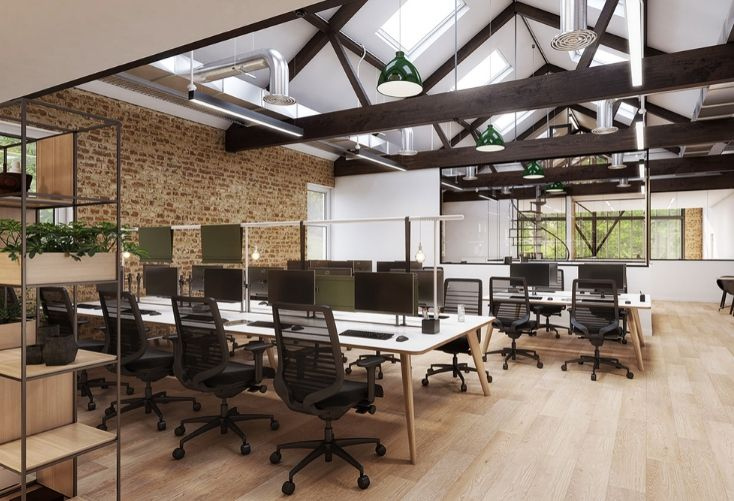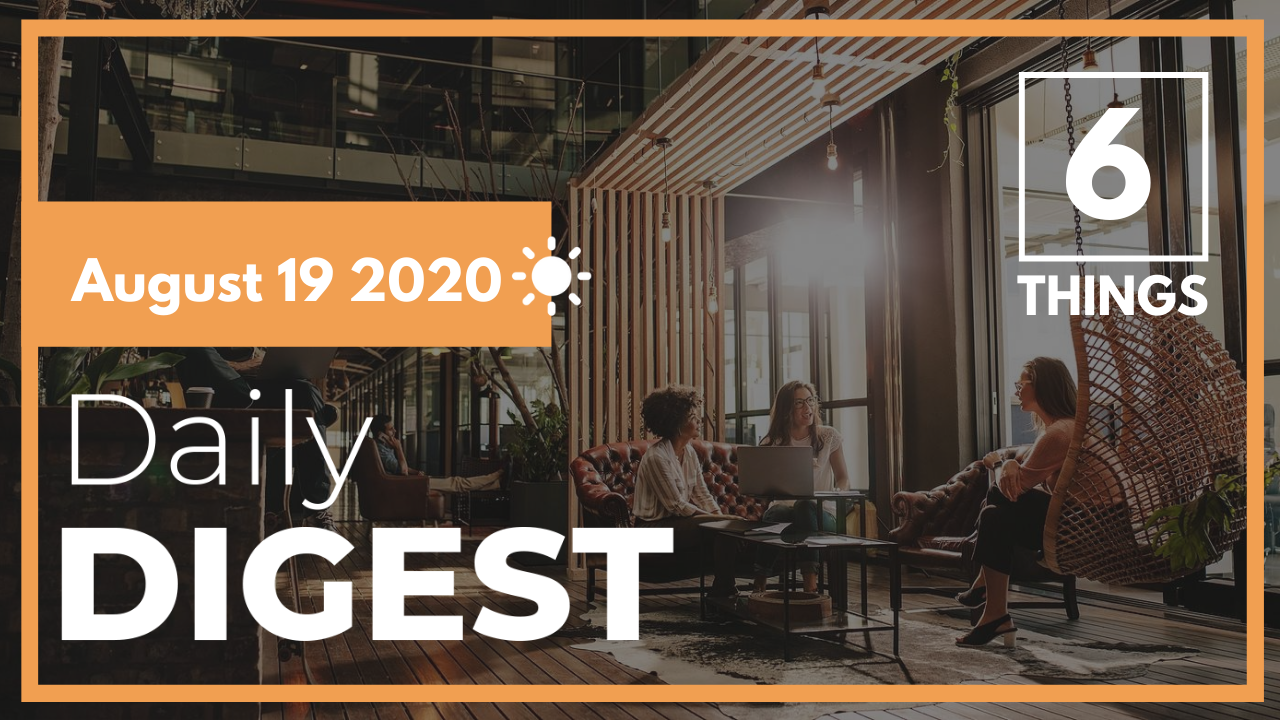Hand selected flexible workspace news from the most reliable sources to keep you ahead of the pack. We find all the latest news, so you don’t have to. Morning and afternoon updates. Stay in the know.
Here’s what you need to know today:
- Keeping Up With The Future Of Work NEW
- Amazon To Expand Its Office Footprint In The US NEW
- Adapting To The Workplace Needs Of Employees NEW
- London Professionals Want Local Offices
- The Solution To Workplace Balance Is A Hybrid Model
- Coworking Firms Create Learning Pods For Students
Keeping Up With The Future Of Work
The ongoing pandemic has led to sweeping unemployment and increasing uncertainty about the economy and workplace operations as a whole.
For years, analysts and experts in the commercial real estate sector have predicted that companies would adopt remote working arrangements, but the pandemic has accelerated this process faster than anyone could have anticipated.
A report from Forrester indicates that companies recovering from a recession turn to automation to reduce operational costs. Additionally, Forrester has predicted that automation could cut 29% of US jobs by 2027, but could also create 13% of new jobs during the same time frame.
Overall, it is clear that without the formal education and experience, organizations can suffer and experience job losses. That is why it is vital for companies to prepare employees to work alongside technology, including machine learning and AI, in order to keep up with the future of work and mitigate potential risks.
The future of work will be one with job opportunities that require high skill levels, so equipping workers with these new tools now is essential for the coming years. This should be done through university courses, job training programs for the unemployed who want to become more competitive, low-cost counseling for those who need extra wellness support and enlist help from the private sector to form strategic future of work plans.

Amazon To Expand Its Office Footprint In The US
Amazon has revealed that it will be expanding its offices across six cities in the US in an effort to bring employees back into the office.
This move competes with its fellow technology companies, such as Facebook and Google, who recently announced they would be expanding their remote working policies.
Amazon will add 900,000 square feet of office space in Dallas, Denver, Detroit, New York, Phoenix and San Diego, as well as create 3,500 technology and corporate jobs across the cities.
“We are looking forward to returning to the office,” said Ardine Williams, Amazon Vice President of Workforce Development.
The company also said it has acquired the Lord & Taylor Fifth Avenue building to create 2,000 jobs and open 630,000 square foot of office space.

Adapting To The Workplace Needs Of Employees
Pakistan, along with the rest of the world, has simultaneously experienced the complicated relationship of transitioning to remote working positions in the midst of an unprecedented pandemic. Although many experts have predicted a move towards working from home in the coming years, this arrangement being a result of COVID-19 has created its own challenges.
Despite workers being able to avoid long commutes and a healthier work-life balance, some employees are eager to return to the office.
So how can companies prepare for the future of work that is happening before our eyes? First, finding a balance between the office and remote working will be key. Many analysts have proclaimed that the office is dead, but the reality is that many workers need a space outside of the home with reliable internet and privacy. In Pakistan in particular, home life often includes a joint family system, which can make it difficult to focus.
Socialization with colleagues is also essential for collaboration and mental health. Maintaining these relationships through spontaneous interactions can help improve overall work performance and nurtures creativity.
All of this considered, the office will have to undergo necessary changes. Workers still value flexibility and safety in the workplace, so organizations need to create a space that emphasizes the wellness and health of employees.
While the office is still an essential part of a company’s operations, finding a balance of both remote and in-office working through a hybrid approach could be the perfect solution.

London Professionals Want Local Offices
A new survey commissioned by flexible workspace firm Spacemade looked into the evolving workplace demands of professionals residing in London.
Of the 350 respondents that were surveyed, 43% said they would like to work in a local workspace at least part of the time moving forward. Additionally, the most popular work arrangement was being in a local office 2-3 days a week and 2-3 days from a headquarters. Only 15% said they wanted to work remotely full-time.
Using local workspaces appeared to be the most favorable work environment for those working in medium to large organizations.
“The momentum for flexible working has been growing steadily over the past decade,” said Jonny Rosenblatt, cofounder of Spacemade. “Employers have embraced a rise in condensed hours and staggered hours and occasional working from home. Coronavirus is accelerating this change in an unprecedented way and signals a significant shift in the future role of the core office and flexible working patterns.”
The company anticipates that the impact of the ongoing pandemic will change the trajectory of how businesses use workspaces over the next couple of years, with many looking to adopt satellite offices so employees can continue to collaborate while being closer to their homes.

The Solution To Workplace Balance Is A Hybrid Model
Many companies have long been wary of remote working arrangements due to the misconception that it can hurt productivity levels and morale. Now, as the world enters the next phase of working after months of working from home, organizations may be rethinking their strategies.
Some businesses are going forward with a fully remote workforce and leaving behind many of their office spaces. While society as a whole recognizes that remote working does hold numerous benefits, abandoning physical workspaces altogether can have a detrimental impact to a company’s culture, technology and branding.
Instead of ridding of headquarters altogether, companies should look into adopting a hybrid approach that takes advantage of the perks of both remote and in-office working.
Without having a physical office, connections with colleagues can take a big hit. Those regular interactions with coworkers are essential to supporting overall culture and collaboration.
With hybrid working, employees can maintain a healthy balance between home and life, while nurturing relationships with their colleagues.
In order to fully implement a hybrid work strategy, organizations need the technology and workplace accommodations that makes both working from home and in the office a seamless process.
For instance, open plan workspaces will no longer be ideal in a post-pandemic society. Now, companies will need to rearrange their spaces to emphasize distancing, privacy and cleanliness.
Having a hybrid workplace helps nurture a culture that values collaboration, as well as the wellness of employees.

Coworking Firms Create Learning Pods For Students
Some coworking operators are converting their workspaces in order to create an environment for students to safely virtually learn.
For instance, coworking firm Quest Workspaces, which has 12 locations in Florida and New York, will turn its office space into small pods for students who will be accompanied by a tutor or teachers. This comes as many school districts are making the move to virtual arrangements due to the ongoing pandemic.
Coworking firms are taking advantage of this opportunity, particularly as leasing for these workspaces has fallen over the past several months. For instance, leasing for coworking spaces was down 84% in the first quarter of 2020 year-over-year in New York according to JLL.
“It’s no different than what we do in terms of managing our space. We can bring companies together of all different sizes,” said Laura Kozelouzek, CEO of Quest Workspaces. “There is a need for people to get out of their homes.”
The Quest Micro-Class Pods will start at $200 for children of members, and $400 for nonmembers. Each pod will include up to six students and will largely be geared towards middle and high school students.
Industrious and WeWork are also considering adopting a similar strategy in a safe and responsible way.


















